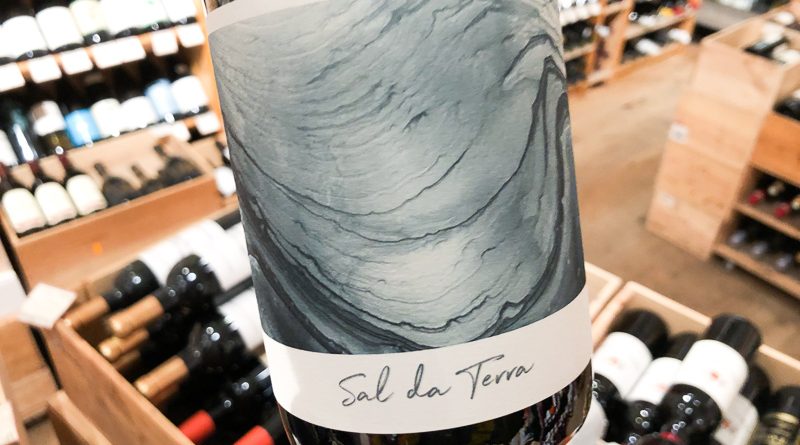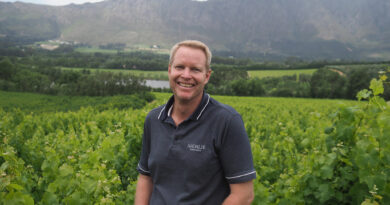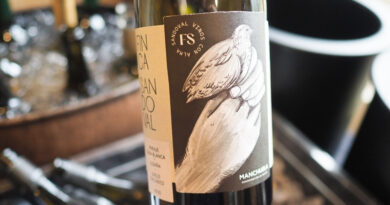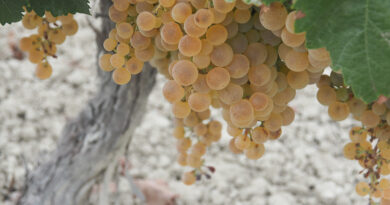Sal da Terra, in search of the perfect Albariño
Back in June 2018 I travelled to Galicia with chums Daniel Primack and Ben Henshaw. We were on a mission: to make the finest Albariño known to humanity.
Henshaw owns an import business: Indigo Wine. Primack imports Zalto glass into the UK, among other things. And I write a bit, and do masterclasses and stuff. Some months earlier we’d tossed around the idea of doing a collaborative wine, and for me this was a no-brainer, particularly when it was to be in partnership with Eulogio Pomares, the master of Albariño.
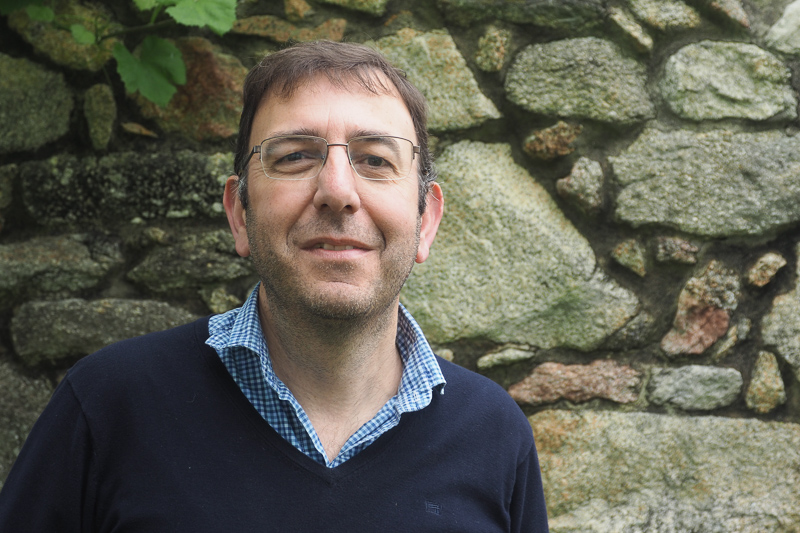
As well as making excellent wines with his family’s winery, Zarate, Pomares also makes wines under his own name. These are stunning. It was his Carrolcoba that for me is the single best Albariño I’ve tried: https://www.indigowine.com/wine/carralcoba/
So we spent some time with him, and discussed what our project might look like. In the end, we decided on two vineyard plots for the wine, which we’d decided to call Sal da Terra (‘salt of the earth’).
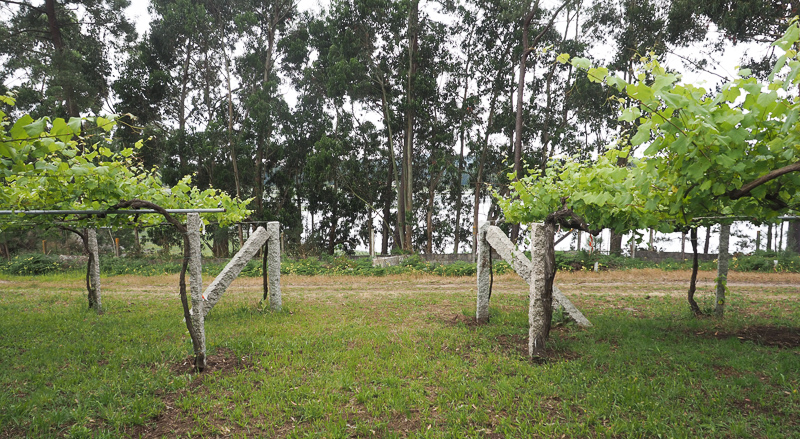
The first is Francón in Castrelo (next to the town of Cambados), which is close to the Ría de Arousa, giving a big influence from the Atlantic. The age of the vines is 35 years, trained in emparrado (the local name for the Pergola system). Soils are granitic but with some red clay, which helps retain water and give nice even ripening even when it’s hot. This plot was harvested on 15th September 2018.
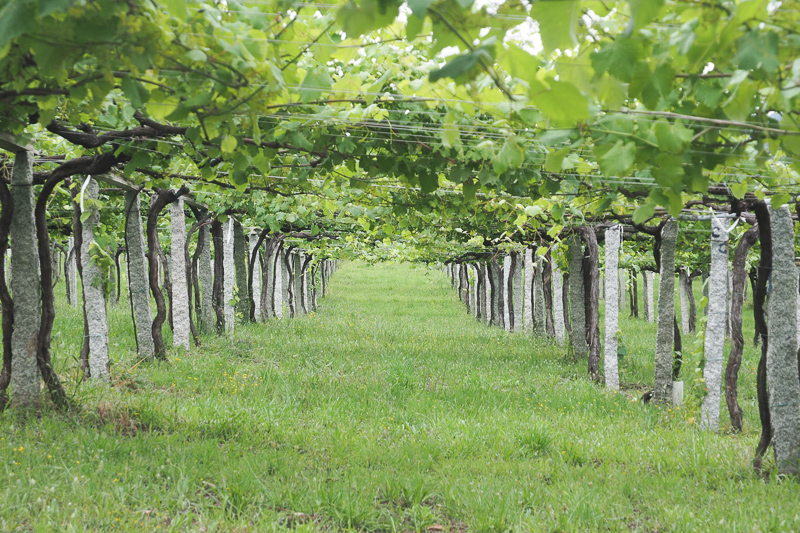
The second vineyard is Carballoso in Xil (Meaño). This is inland, 6 km from the Atlantic and at an altitude of 250 m. These vines are 30 years old, and are als trained in emparrado. Soils are sandy granitic. ‘It is a kind of granite that we call Xabre,’ says Pomares. ‘The rock is disaggregated and is a yellow colour because you also find iron in the rock.’ It is a poor soil, giving concentrated grapes with low yields. This was harvested on 18th September 2018.
The vines are farmed organically with no herbicides, but aren’t certified.
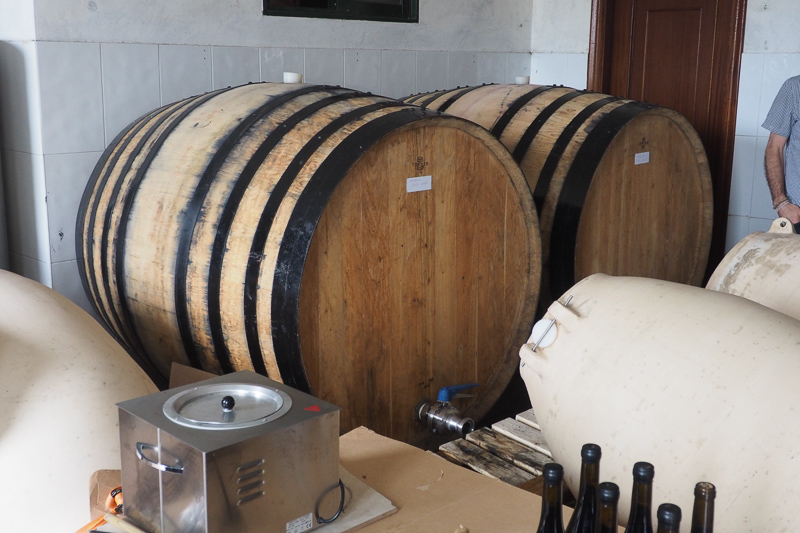
Pomares’ Carrolcoba is fermented in a 1200 litre chestnut barrel. These are interesting because they are big, affordable, and more-or-less neutral when the staves have boiled so they can be bent. [I can’t find any references for this, but Pomares’ wine certainly doesn’t have any noticeable oak character.] So we wanted to do a portion of wine in this, but also a portion in concrete tanks. Pomares was keen on this, because he’d nut used concrete for Albariño before.
So grapes from Carballoso were fermented and aged in a 1200 litre chestnut barrel, while the Francón (Castrelo) portion was fermented and aged in a 1500 litre concrete tank. Both lots were destemmed (not crushed), press in a pneumatic press. After a light settling they went to chestnut and concrete for a natural ferment.
We met together in London and had a look at the wines in April, and did a blending exercise. In the end, we decided on using slightly more of the Chestnut-aged wine than the concrete tank wine, although both were lovely. It reduced the volume slightly, but that was fine. The two wines were blended in April after harvest and bottled in August without fining or filtration. 3360 bottles were made.
The result? Henshaw has to take a lot of credit for the beautiful packaging (although we all had some input). It’s really stunning, with label art by a South African artist called Mariette Kotze and design by Spanish studio who do Pomares’ labels (http://www.calcco.com).
And the wine? I can’t comment, because I have a horse in this race. But it has been nicely reviewed by Jancis Robinson:
“Intense and rich – really quite outstanding as an Albariño in fact! There is real breadth to its impact on the palate (unlike so many Albariños) and a distinct sea-breeze quality to it, with impressive grip on the end. I shared what was left in the bottle with some friends and it was gone in no time. This is a wine to make me fall in love with Albariño again. 12%. Drink now-2023” 17 points
Jancis Robinson
Trade price to restaurants is £18.60 ex vat. RRP is around £28.50
UK retailers include Vincognito (https://www.vincognito.co.uk/white/sal-da-terra-albario-rias-baixas-galicia-spain-2018) and Handford Wine (https://www.handford.net/product/sal-da-terra-albarino-2018-rias-baixas/)
Some has also found its way to Eric Solomon in the USA, and there’s some in Norway too, apparently.

